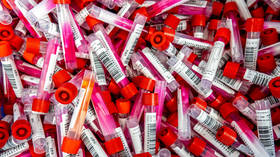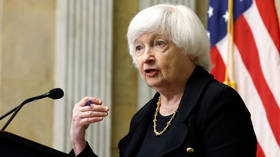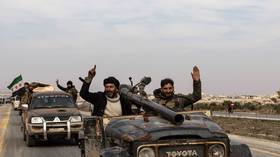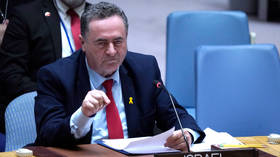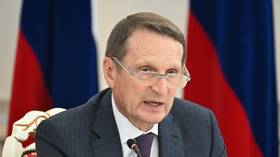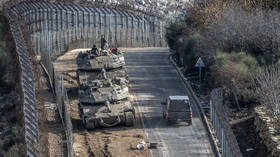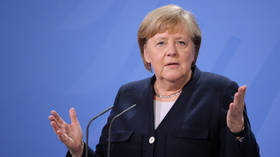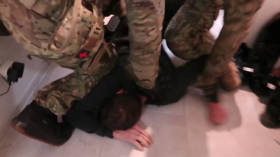Merkel in Moscow: As Trump pushes his weight around, Russia-Germany relations defrost
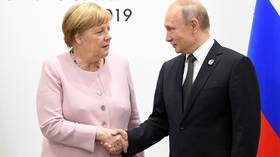
Angela Merkel’s visit to Moscow is far from a courtesy call. Germany and Russia’s political relations are thawing. It’s good news for all Europeans.
As Iran and the United States seemingly limbered up for war, Russia and Germany, as the continent’s two most powerful countries, have a special responsibility to protect it from any fallout.
Merkel’s decision to travel to the Russian capital may be conceived as a signal to Washington that:
a) Berlin remains capable of mounting an independent foreign policy, if pushed,
b) the Germans won’t be cowed by sanctions the US has placed on the Nord Stream 2 pipeline, which further connects their country directly to Russia’s gas supply network, and
c) Merkel wants the US leadership to know she agrees with Moscow about Donald Trump’s order to murder Iranian General Qassem Soleimani. Russia has labeled it “reckless” and the Germans have questioned the legality of the killing.
Especially given that she was already due to visit Moscow in May, for the 75th anniversary of Soviet Russia’s victory over the Nazis.
Also on rt.com ‘Interference in domestic affairs’: Germany fumes at US sanctions on Nord Stream 2 pipelineWashington’s move to sanction the pipeline amounted to straight-up racketeering, right out of the mafia playbook. It’s trying to force Germany, a supposed ally, to buy liquefied gas from US companies, which is more expensive than the product it gets from long-time supplier Russia.
Peas in a pod
Germany and Russia need each other. They are Europe’s most powerful economies, measured by purchasing power parity. And together, they are home to around a third of its population. Moscow relies on revenue from its exports to the German market and Berlin would be in serious bother without access to Russian resources.
Geopolitically, they also complement each other, in many ways. From all points west of the Poland-Belarus border, Berlin is the most influential player. But east of that, and south of the Black Sea, Moscow is in the driving seat. The Germans will be eager to see how Moscow’s influence in the Middle East can be leveraged – a region where they have little, or no, clout.
Also on rt.com ‘Big loss’ if Iran’s nuclear deal scrapped & regarding Iraq, US threats are ‘not helpful’ – German FMOn Saturday, there is much to discuss, with Libya, Syria, Iran and Ukraine top of the agenda. Just this week, Iran and the US clashed in Iraq and Tehran gave up on an international nuclear deal, which both Berlin and Moscow have championed, although Donald Trump had already rendered it essentially useless last year. Meanwhile, Turkey, which both Merkel and Putin view as an important player, sent soldiers to Libya.
Long goodbye
Ukraine itself is another important issue for the two leaders, given that it has driven a wedge between Germany and Russia for well over half a decade now. Put plainly, Moscow believes that the EU over-reached by attempting to bring Kiev into its sphere of influence in 2013, although it accepts the heavy lifting was done by pro-US/NATO elements in Brussels, and is aware Berlin was never super keen on EU membership for the Ukrainians.
The Germans think Russia was overly aggressive in its response to the 2014 ‘Euromaidan.’ Berlin rejects Moscow’s re-absorption of Crimea, believing it to be a dangerous ‘precedent’ in redrawing European borders (which, of course, ignores Germany’s own role in the collapse of Yugoslavia). And it also holds Russia responsible for fueling the Donbass conflict, through its support for the self-declared republics.
When it comes to Libya, Putin and Merkel are basically on the same page – they both want an end to the fighting.
They’ve never been especially personally friendly, but Putin will miss Merkel when she finally steps down. The German chancellor is the last remaining Western leader who featured in both his stretches as Russian president.
This year will be pivotal in terms of what sort of Germany-Russia relationship she leaves behind. The countdown begins on Saturday.
Subscribe to RT newsletter to get stories the mainstream media won’t tell you.


